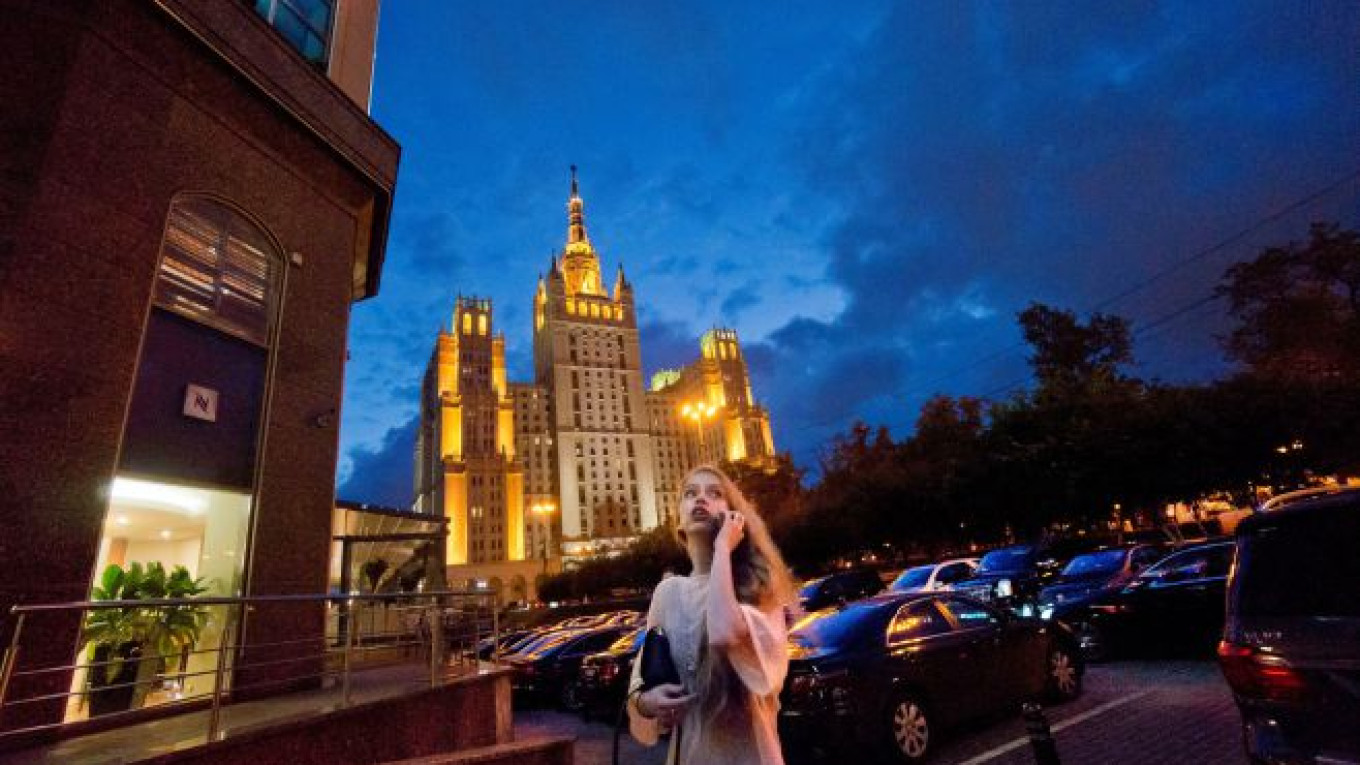The Russian authorities are attempting to turn Moscow into a showcase of urban development and democracy. They inquire after Muscovites' preferences on every trivial detail from how frequently they should mow public lawns to the order in which they should repair the city's streets. But the authorities' desire for feedback ends there.
According to a recent interview that Moscow Mayor Sergei Sobyanin gave on Govorit Moskva ("Moscow Speaks") radio, his main achievement during his five years in office has been to change the ideology of how Moscow develops.
According to Sobyanin, Moscow is transforming from a city overburdened with cars, lacking in public spaces and unattractive for its residents to a city catering to the needs of its inhabitants.
Indeed, the city is actively developing parks, pedestrian zones, bicycle paths, outdoor Wi-Fi areas and bike paths.
Several streets in the center of town have been converted to pedestrian promenades and several prominent Moscow roads got makeovers last summer.
As part of the My Street project that Mayor Sobyanin launched last year and which calls for the reconstruction of seven major thoroughfares and 43 streets in the city center this year alone, work is now under way on Triumfalnaya Ploshchad as well as Myasnitskaya Ulitsa and Ulitsa Bolshaya Ordynka.
Experts from the Strelka Institute created the development concepts, but Muscovites vote on the Aktivny Grazhdanin ("Active Citizens") website to choose which streets are rebuilt according to which design and in which order.
Moscow residents have voted down some initiatives — such as the proposal to impose a speed limit on the Boulevard Ring — but in most cases, the narrow scope of the questions and the limited choice offered produces predictable results, even in potentially controversial subject areas.
Using the site, Muscovites voted for the implementation of paid parking in the city center, the removal of street vendors, a plan for the reconstruction of Moscow State University and, as part of the My Street project, the choice of paving tiles and the design of street lights.
Considering that Moscow — the city with the greatest protest population in the country— has de facto banned public demonstrations of civic action, the authorities need to insure themselves against possible voter discontent.
Recent examples of such activity include petitions against the construction of an Orthodox church in Torfyanka Park and the erection of a monument to Prince Vladimir in Vorobyovy Gory (Sparrow Hills).
The authorities have chosen to grant Muscovites a degree of self-expression, but in the safest possible form. The ruling elite became alarmed when opposition leader Alexei Navalny managed to garner 250,000 votes in the Moscow mayoral elections in 2013, even with a low 32 percent voter turnout. While that is only 2 percent of Moscow's total population, it is roughly the same number of people who visit the Aktivny Grazhdanin site.
In fact, as many as 73,000 people signed the petition opposing the monument to Prince Vladimir in Vorobyovy Gory. That convinced the authorities to scrap only part of their plan: they gave Muscovites a choice of two alternate locations but insisted that, whatever the people thought, the statue would go up.
Nikolai Epple is a columnist at Vedomosti. This comment originally appeared in Vedomosti.


